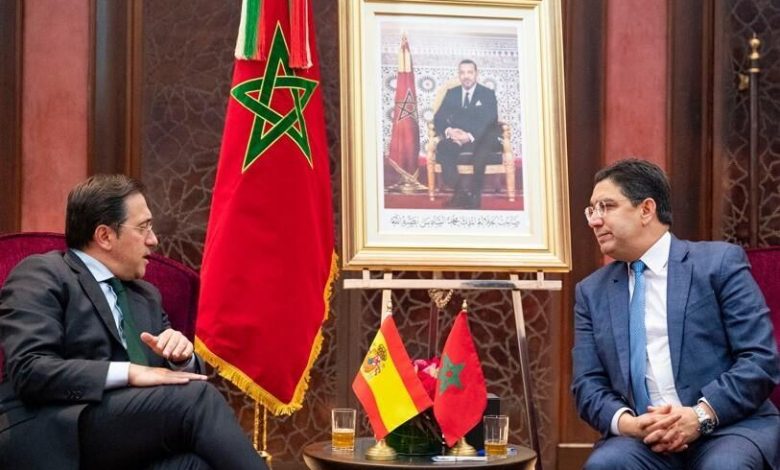Morocco-Spain Summit Ends Rumors of Cooling of Ties

The governments of Morocco and Spain will hold a summit meeting on February 1st and 2nd, almost a year after the reconciliation between the two countries, the Spanish Foreign Ministry announced on Wednesday, ending rumors circulated by some Spanish media and anti-Moroccan lobbies about a cooling in relations between the two countries which led to the postponement of the summit.
“Spain and Morocco have decided to hold the twelfth high-level meeting on the first and second day of February in Rabat,” the Spanish foreign ministry said in a statement, responding to supporters of the secessionist Polisario Front who have been aggravated by the rapprochement and cooperation between Madrid and Rabat.
Spanish Prime Minister Pedro Sánchez and 12 ministers from his Socialist Party are taking part in the summit, the ministry said, without specifying who will take part.
Such a summit was announced last April on the occasion of Sánchez’s visit to Rabat. He was received at the time by King Mohammed VI, who crowned reconciliation between the two countries after a year of diplomatic tensions linked to the sensitive issue of the Moroccan Sahara.
In November, Spanish Foreign Minister José Manuel Albares refuted allegations, some of which were reported by a Spanish newspaper, of a “cooling” in Moroccan-Spanish relations, following the postponement of the summit between the two countries. His Moroccan counterpart, Nasser Bourita, had confirmed that the summit would be held at the beginning of this year, after it had been scheduled for the end of last year.
At the time, Albares said that the reason behind the postponement of the summit between the Moroccan monarch and the Spanish Prime Minister was the agenda of the two leaders, which is packed with other issues, which prevented the holding of the high-level summit meeting as scheduled.
Despite the rumors, relations between Rabat and Madrid have recently been strengthened on many common issues, both security cooperation, the fight against organized crime, smuggling and terrorism, and the strengthening of economic relations.
The praise by King Felipe VI of Spain of the level of strategic partnership between Morocco and Spain in the past months, in the light of the excellent relations in all fields, was a strong response to rumors and attempts to upset relations between the two countries.
“The new phase in bilateral relations with Morocco will allow us to build the foundations of a firmer and stronger partnership than before, which should also be done on the nature of political relations with other Maghreb countries,” said Felipe VI, according to the Moroccan website Hespress.
He added that “bilateral relations with other Maghreb countries must be based on mutual respect, similar to the partnership with Morocco, by respecting the domains of the national sovereignty of the state, and also complying with bilateral agreements and the values of genuine cooperation” in a veiled criticism of Algeria’s policies.
The fact that Polisario Front leader Brahim Ghali was receiving treatment in Spain for COVID-19 sparked a row between Rabat and Madrid, which peaked with the arrival of more than 10,000 migrants in the Spanish enclave of Ceuta in May 2021, with Madrid accusing Rabat of turning a blind eye to the entry of migrants, a claim denied by the Moroccan government at the time.
The reconciliation between Spain and Morocco culminated in Madrid’s public recognition of the Rabat autonomy plan for the former Spanish colony as “the most serious, realistic and credible basis” for a solution to the conflict. The separatist front, with its Algerian backer, tried to put pressure on Madrid, but the Spanish government did not respond to it and strengthened relations with Morocco.
King Mohammed VI has repeatedly stressed that the Sahara issue is Morocco’s international spectacle, in a clear sign that his country’s relations with countries including Spain are based on its position on the issue.












